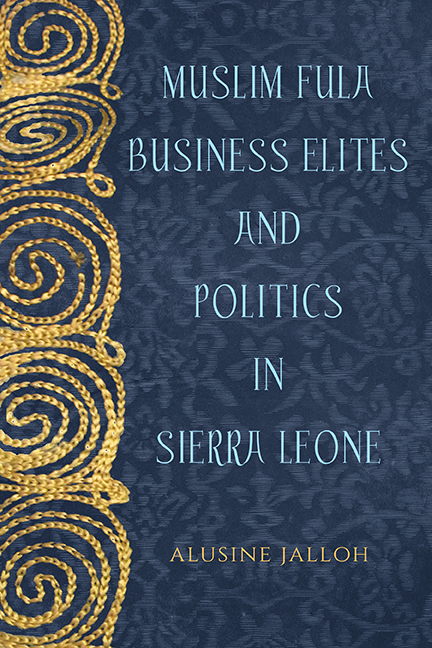Summary
This book has reconstructed why and how Muslim Fula business elites participated in the politics of postindependence Sierra Leone. Focusing on the years 1961 to 1992, the study covers the political administrations of Prime Ministers Milton and Albert Margai of the SLPP as well as the Prime Minister Siaka Stevens, and later, Presidents Stevens and Momoh of the APC. The book has successfully argued that although there were varied reasons for Fula business elites’ involvement in national politics, they centered on immigration and business, which were interconnected. Vivid collective portraits of the prominent Fula business leaders are contained in the work. In pursuit of their goals in Sierra Leone's political landscape, the book has documented that Fula business leaders demonstrated political pragmatism by focusing on strategies centered on building and expanding intra-group collaboration involving traditional, political, and business leaders, as well as Western-educated Sierra Leonean–born public officials and professionals. Moreover, the Fula forged bipartisan political alliances and served in important leadership positions in multiethnic Muslim organizations such as the SLMC, SLMB, SLPWA, and SLSIC, which provided platforms to work with government officials, politicians, business elites, religious leaders, and both police and army law enforcement on policies relating to the Fula population.
For four decades after independence in 1961, the FPU—which brought together foreign-born and Sierra Leonean–born Fula—evolved into an effective interest group that advocated and defended broad Fula interests, particularly those relating to immigration and business. The FPU was successful in bridging political, generational, class, religious, and ancestral homeland divides among the Fula people. Among its members were Fula business elites, politicians, traditional rulers, top government employees, religious leaders, highly skilled professionals, students, housewives, and grassroots individuals in the Fula community. The Stevens era witnessed the largest growth of the FPU's membership in response to the APC government's repressive actions against the Fula people, as clearly evidenced in the study. With highly placed Sierra Leonean–born leadership, the FPU was largely successful in navigating the country's political landscape in dealing with Fula immigration and business challenges. Moreover, the FPU leadership played a pivotal role in resolving long-standing intra-Fula mistrust and disputes between native-born and foreign-born Fula, as well as between Western-educated and non–Western educated Fula. Also, deeply rooted rivalry between the minority Fula of Senegalese heritage and the majority from neighboring Guinea was reconciled.
- Type
- Chapter
- Information
- Muslim Fula Business Elites and Politics in Sierra Leone , pp. 211 - 222Publisher: Boydell & BrewerPrint publication year: 2018

